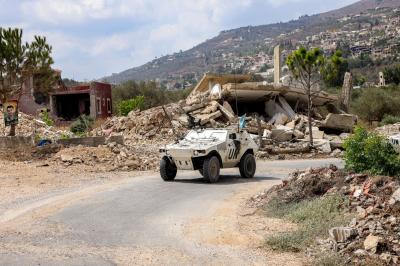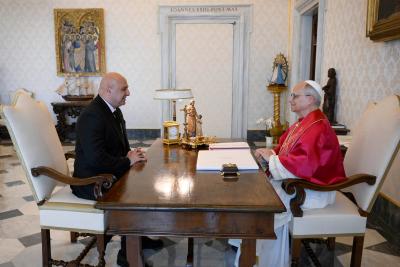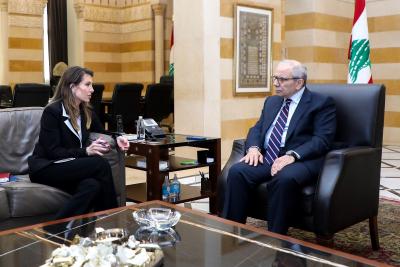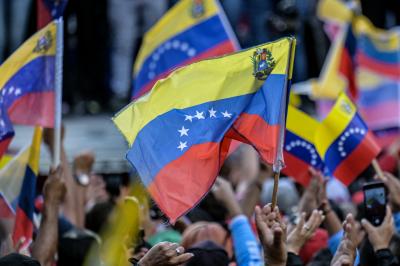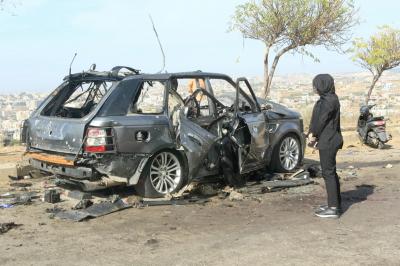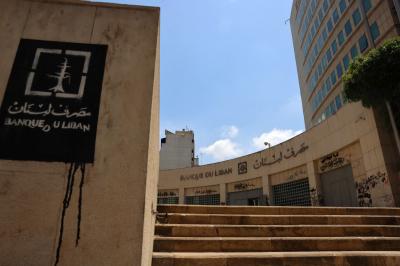The tense relations between Hezbollah and the Christians in Rmeich are just one stage in a series of confrontations with certain Christian factions. The setback in the dialogue between Hezbollah and the Free Patriotic Movement, as well as the obstacles encountered, have had repercussions on Hezbollah's presence and its relationship with Christians. Hezbollah is accused of breaking the partnership in the presidential issue, monopolizing decisions of peace and war, and leading the country towards a war it cannot bear the consequences of. All this finds its justification in Hezbollah's vision of this relationship.
Opening the file on the relations between the two parties reveals a long list of unsettled accounts and mutual recriminations that have cost the country dearly and continue to do so. The setback in relations between the Movement and Hezbollah was a pretext for a Christian escalation against Hezbollah and its armament, due to its war in the South without the approval of the state. Another controversial issue is that of partnership due to the Shiite duo's adoption of Sleiman Frangieh's candidacy, rejected by the main Christian parties.
Hezbollah has its own considerations that Christians, including the Free Patriotic Movement, reject. From the Movement's perspective, the political action of the Shiites took the Christians, including the Free Patriotic Movement, by surprise by ignoring their concerns about partnership. This led to a meeting of Christians in Bkerké and the mobilization of positions rejecting illegal weapons. This issue was discussed extensively in the convened circles, without reaching an agreement. When he was president, Michel Aoun managed to neutralize this point or insist on the demand for the defense strategy. Throughout his term, Aoun sought to relieve his ally and support him.
Armament, the decision of peace and war, and the presidency are common points on which the head of the Movement, Gebran Bassil, and the head of the Lebanese Forces, Samir Geagea, as well as the Kataëb, converge, with a difference in style and flexibility in the approach and commitment to dialogue rather than confrontation.
Bassil, whose relations with his ally have cooled, is forced to engage in dialogue with political components to meet them for the presidency, after failing to change Hezbollah's position on Frangieh's candidacy. He failed to align with unity on the ground, thus turning Lebanon into a legalized battlefield in the face of Israeli demonstrations.
Another issue raised by the Movement is the rejection of Christians in the face of the rapid rise of political Islam and the development of Sunni-Shiite relations at the expense of partnership with Christians, thus alerting Christians to the need to review the composition of the regime as a whole. We are talking here about the demand for administrative decentralization and the Council of Senators, as well as the issue of deadlines, urgent matters. Whatever the conclusion of the Christian meeting in Bkerké, if it fails to agree on disarmament, agreement has been found in the vision of the system and the need to change and review it.
If Michel Aoun relieved his partner regarding the defense strategy, he can no longer afford to ignore the problem today, as armament is rejected in the Christian conscience, and there is a Christian faction that blames the Movement, which has given a lot to Hezbollah, for refusing to establish a state and maintaining its weapon for security projects, and making decisions of war and peace. That's why attempts to demonize opponents of opening the southern front have been poorly received. The message of Christians today is that they do not want to go to war and will not be traitors.
The way Hezbollah approaches its relationship with Christians varies. According to party sources, since its political beginnings, it has sought to maintain an open relationship with Christian forces, except for the Lebanese Forces due to the legacy of the Sabra and Shatila massacre and the assassination of President Omar Karami, as well as relations between the inhabitants of the South and actors like Saad Haddad, Antoine Lahad, and Elie Hobeika. For years, a part of the Christians considered the resistance as a militia, until the liberation in 2000. The party regretted that national partners refused to treat it as a resistance and its members as martyrs, « but we still wanted to maintain the best relations with Christians. » When Hezbollah was structuring its organizational framework, it « made sure to maintain a relationship with Christians and managed to establish relations with several Christian factions. » The following facts illustrate the evolution and reality of this relationship:
Despite the positive remarks of Samir Geagea, president of the Lebanese Forces, that Hezbollah is a party with which one can dialogue because they are loyal, Hezbollah refused to open dialogue channels with the Forces or establish a direct political relationship with them for various reasons. Without closing the channels of communication with them in Parliament and the government, until the Tayouneh incident occurred, which closed the open doors.
With the Kataëb, it engaged in dialogue and exchanges of meetings that led to a visit by President Amine Gemayel to Hezbollah's Secretary-General, Hassan Nasrallah. Delegates were charged with the dialogue and articles were written to reach a common agreement « but the problem with the Kataëb is that their words in private, not in public, were not serious. They continued to attack Hezbollah's weapons in the media.
Hezbollah made sure to maintain relations with the Maronite Patriarchate despite obstacles and negative positions. It deliberately chose not to respond to attacks « we are committed to relations with Christians and to Lebanon being a country of coexistence and national unity, but the main cause of disagreement is the presidency of the Republic. Bkerké considers that Hezbollah imposes its will on Christians by insisting on Frangieh's candidacy, but Hezbollah considers this as one of its rights, with its reasons and strategic considerations, because it wants a president who reassures it about its position. This has been a source of irritation for some, but dialogue is possible even if the relationship has its ups and downs. »
With the Movement, it concluded an agreement with Mar Mikhael « which represents one of the most important agreements that symbolize the relationship between Christians and Shiites, and has been a cause of attack after consolidating the concept of unity and establishing new bases of cooperation between allies. » It held up until 2013 despite many obstacles « and when our relationship with the Movement was good, our presence within the Christian community was stronger, but when the relationship became tense, this presence diminished. »
Hezbollah recognizes that its presence in the Christian street today is « less than at the time of the agreement with the Movement, and its position on the Christian scene is not as strong as before, and the relationship has been affected by differences or divergences of views. » It also recognizes that its dispute with Christians is about the presidency, and when the dispute ends and a president is elected, everything will return to normal and a new page will be opened. » Its sources continue by saying « the nomination of Sleiman Frangieh is the reason and we hold on to it for reasons related to the need for the resistance to be reassured about the person of the president, while everyone is against us. » The sources add « we need to restore our relationship with the Christian forces after the presidency, and the war will be over, regarding the southern battlefield, we did not ask any party to participate in the decision so as not to embarrass them, we only asked them to remain neutral and we told General Aoun that we are eager not to drag the country into a total war. » However, the party considers that « asking for a cessation of hostilities in the middle of the war is a stab in the back and politically serves Israel, but we understand and we remain silent and we are committed to a partnership with Christians. »
Please post your comments on:
[email protected]
 Politics
Politics
